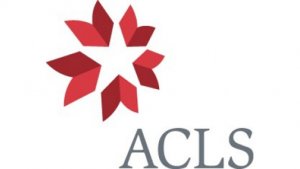Robert H. N. Ho Family Foundation Collaborative Research Fellowships in Buddhist Studies
The Collaborative Fellowships offered in prior competitions are no longer available in the same form. The new competition, Grants for Critical Editions and Translations, supports collaboration focused on the preparation of texts.
The American Council of Learned Societies (ACLS) announces the fourth year of an initiative supporting research and teaching in Buddhist studies, funded by a three-year grant of $6.7 million from The Robert H. N. Ho Family Foundation. In cooperation with the Foundation, ACLS offers an integrated set of fellowship and grant competitions that will expand the understanding and interpretation of Buddhist thought in scholarship and society, strengthen international networks of Buddhist studies, and increase the visibility of innovative currents in those studies.
These are global competitions. There are no restrictions as to the location of work proposed or the citizenship of applicants. The final products of research supported may be in any language.
The Robert H. N. Ho Family Foundation Collaborative Research Fellowships in Buddhist Studies support work that may be interdisciplinary or transdisciplinary. International and multilingual projects are encouraged. Especially welcome are projects that relate different Buddhist traditions to each other or that relate scholarship on the broad Buddhist tradition to contemporary concerns in other academic fields.
Applications must identify the project coordinator and the other principal collaborators, all of whom will be named Collaborative Fellows. Applications must propose a clear plan for the collaboration with a jointly-authored, research-based scholarly product. While scholars collaborate in many ways, such as reviewing each other’s work or sharing ideas at conferences, these fellowships support only projects in which all Collaborative Fellows dedicate a significant amount of effort to the joint work.
Workshops may be proposed for Fellows and a small number of colleagues working on a similar topic. Conferences may also be proposed, but these must include public events for presentation of the work accomplished during the project. Proposals for such events must be applied for separately and require detailed budgets. Up to $5,000 is available for workshops; up to $15,000 for conferences. The total amount of the fellowship, including funds for workshops and conferences, cannot exceed $200,000.
Requests to fund conferences or workshops will be considered only as part of a broader, research-based project. Conferences or meetings in themselves do not fulfill the requirement for jointly authored, research-based scholarly products.
The Project Coordinator should apply on behalf of the team with requests for individual stipend amounts (and the associated periods of work on the project) and with requests (if any) for workshops and conferences. It is expected that project funds will be received, disbursed, and reported on by the project coordinator's university.
Eligibility
- Teams may consist of two or more Collaborative Fellows, preferably not from the same institution.
- Every Collaborative Fellow must hold a PhD conferred by an accredited, degree-granting university. However, an established scholar who can demonstrate the equivalent of the PhD in publications and professional experience may also qualify.
- The application must be written in English by the Project Coordinator.
- There are no restrictions as to residence or citizenship, or as to location of research.
- Every Fellow must be released from teaching, administrative duties, and commissioned research on other topics for a minimum of three months per year of the fellowship period (i.e., a total of six months in a two-year project) to work on the proposed project.
- Although Collaborative Fellows may alternate their periods of release from teaching, at least three months must be spent by all Fellows in one location for full-time joint research, study, analysis, or writing.
- A scholarly product must be proposed that may be written in any language. Translations, collection, or databases are not eligible without any accompanying scholarly apparatus.
Selection Criteria
- Intrinsic significance of the project.
- Coherence and cogency of presentation.
- Potential contribution to Buddhist studies by relating different Buddhist traditions to each other or relating scholarship on the broad Buddhist tradition to contemporary concerns in other academic fields.
- Innovation and effectiveness in utilizing diverse disciplinary perspectives and methodologies, and in crossing national, cultural, and linguistic borders.
- Feasibility of the plan of work.
- Collaborative Fellows’ records of achievement and qualifications to carry out the work proposed.
Tenure
The fellowship period must begin between July 1, 2017 and September 30, 2018. Fellowship periods may vary according to project needs, but they should be planned for between one and two years’ duration.
Terms
It is preferred that Fellows devote time to the project that is free from teaching, administrative duties, and commissioned research during the academic year. Collaborative Fellows who take leave during the academic year may request stipends up to $65,000 for a nine month period to help fund release from teaching. If the project work is to take place during months without teaching obligations, Fellows may request stipends up to $23,000. Funds may also be requested for project costs (travel, communications, acquiring materials). The selection committee will consider Fellows' designation of project time and requested stipends in assessing the team’s commitment to the collaborative project.

